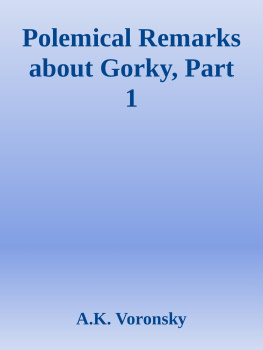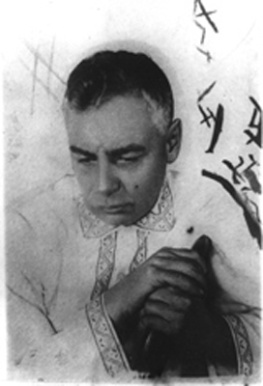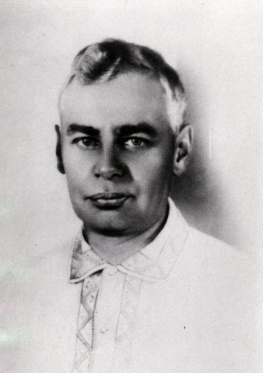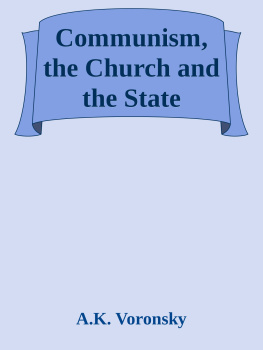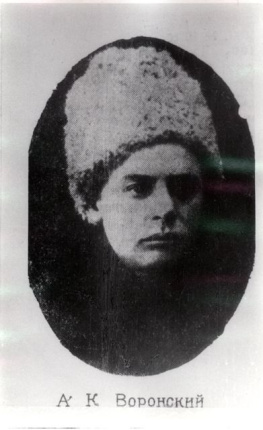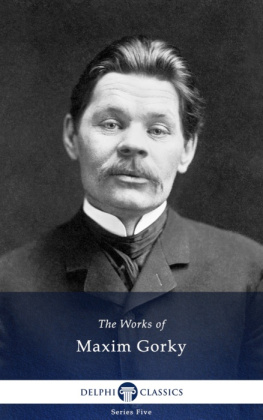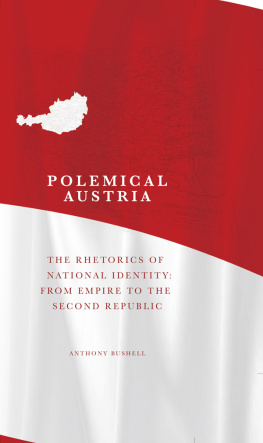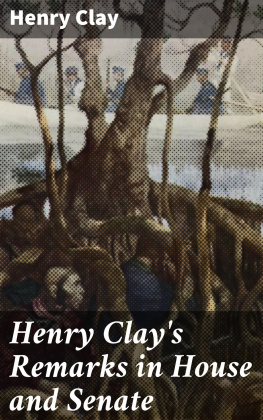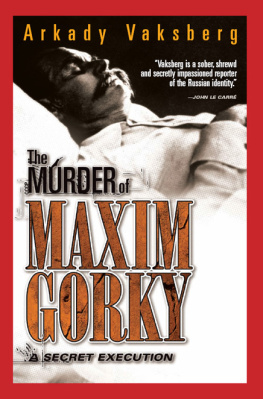A.K. Voronsky - Polemical Remarks about Gorky, Part 1
Here you can read online A.K. Voronsky - Polemical Remarks about Gorky, Part 1 full text of the book (entire story) in english for free. Download pdf and epub, get meaning, cover and reviews about this ebook. genre: Non-fiction. Description of the work, (preface) as well as reviews are available. Best literature library LitArk.com created for fans of good reading and offers a wide selection of genres:
Romance novel
Science fiction
Adventure
Detective
Science
History
Home and family
Prose
Art
Politics
Computer
Non-fiction
Religion
Business
Children
Humor
Choose a favorite category and find really read worthwhile books. Enjoy immersion in the world of imagination, feel the emotions of the characters or learn something new for yourself, make an fascinating discovery.
- Book:Polemical Remarks about Gorky, Part 1
- Author:
- Genre:
- Rating:5 / 5
- Favourites:Add to favourites
- Your mark:
- 100
- 1
- 2
- 3
- 4
- 5
Polemical Remarks about Gorky, Part 1: summary, description and annotation
We offer to read an annotation, description, summary or preface (depends on what the author of the book "Polemical Remarks about Gorky, Part 1" wrote himself). If you haven't found the necessary information about the book — write in the comments, we will try to find it.
Polemical Remarks about Gorky, Part 1 — read online for free the complete book (whole text) full work
Below is the text of the book, divided by pages. System saving the place of the last page read, allows you to conveniently read the book "Polemical Remarks about Gorky, Part 1" online for free, without having to search again every time where you left off. Put a bookmark, and you can go to the page where you finished reading at any time.
Font size:
Interval:
Bookmark:
Maksim Gorky burst upon the literary scene in Russia in the 1890s with a series of deeply romantic short stories and poems (Makar Chudra, Chelkash, Old Woman Izergil, Song of the Falcon). His prolific career spanned more than four decades, during which he produced over thirty volumes of writings. His wide international acclaim was matched by a large following in Russia.
Prior to the October Revolution, Gorky was generally supportive of the Bolshevik Party. In 1917, he became increasingly critical of Bolshevik policy and ended up leaving Russia to live in Italy in 1921. Gorky visited Russia in 1928 and 1929, and finally returned for good in 1931.
The two following articles from 1922 are among Voronskys earliest works. He would follow closely Gorkys evolution until the writers death in 1936. Although Gorky would later be turned into a rather bland, socialist-realist icon by official Stalinist literary criticism, his life and works are far more complex than the stereotypes usually offered. Voronskys articles provide insight into the reception of Gorkys works by young revolutionaries at the turn of the century, and to the development of Voronskys own critical powers.
Before us stands the old and yet ever new question about the harmonious coexistence of the individual and society - these two hostile elements which have remained at odds, stubbornly and relentlessly, for centuries. And every serious attempt to resolve the debate between the individual and society inevitably attracts one's attention and forces one to listen carefully. Gorky has long been debating and trying to solve the problem of "I" and society, - from the very beginning of his literary activity. This does not mean that he has always defended the same position. Between the Gorky who wrote "Chelkash" and the Gorky who was the author of "Confession" lies a truly enormous distance; Gorky-Chelkash, therefore, is in many ways the opposite of Gorky-Iona. I think that such a change in position is not simply the result of the purely individual peculiarities
of his talent, but points to some kind of profound shift in our social life, to an important change in our moods and feelings.
Do you remember, reader, how many deep, fresh feelings and hopes his first works awakened in us? We were captivated in Gorky by the recklessness of courage, by the yearning to shine like a brilliant star or meteor, by the song of a confident young man, proud to be conscious of his own power and strength; we were engrossed by his tales, we believed them without noticing their fantastic nature. Together with Danko we wanted to rip out our seething hearts and illuminate the darkness of the thick forest of our reality; together with the falcon we wanted to soar into the air, if only for an instant; with the stormy petrel we yearned for the tempest.
- Man, - how proudly it sounds!
- Man contains everything, everything for man!
Man and the human personality stood at the center of Gorky's attention. He affirmed human rights, he fought for freedom and for the originality of the individual.
Why was it that we hated his philistines?
For their inability to raise their eyes from the earth to the heavens; for the fact that they sacrificed a yearning to plunge into the thick of things for satiety and mediocre well-being; for their refusal to fight for the right to stand tall, and to recognize themselves as the creators, builders and masters of the earth.
What attracted us to his barefoot and downtrodden people? The fact that they were engaged in elemental protest, that they had cast off the chains which fettered the philistine, that they sang "tragic hymns" of human individuality when they had reached life's lowest depths, that they loved the steppes, the mighty rhythm of surf, and loved to gaze into the skies. We understood Foma Gordeyev and Lunev: we felt close to their mute anguish and discontent, their unconscious yearning to forge a personality out of themselves and find their place in life; we sympathized with their hatred of drab existence and the small change of life.
It is not surprising that Gorky solved the problem of the relationship between the individual and society in favor of the unrestricted rights of man.
A society which places certain demands on each separate member, forcing him to submit and to renounce to one degree or another his inclinations and needs, held little interest for Gorky. His Danko, Falcon and Stormy Petrel gave of themselves, sacrificed their lives, yearned for the storm from the fullness of their being, from the abundance of their energy; - they kept giving, yet asked nothing, made no claims, and never refused anything. There could be no other question here at all.
A problem emerges only when disagreement begins between man and society, when friction, discord, rivalry or conflicts arise. Danko is too immediate for there to be any question about contradictions between the individual and society. To a certain degree Gorky himself was just as immediate.
But only to a certain degree. With Gorky the question nevertheless came up. Without even recognizing its intricacy and complexity, Gorky cut the Gordian knot both simply and decisively: man first and foremost is a sacred individual and should not be constrained by anything.
It is enough to consider his Chelkash, Satin, and other down- and-out people. In essence they were society's parasites. Yet Gorky reconciled himself with their parasitism, because in his eyes this was neither important nor essential: he didn't measure them by society's standards. The only thing that was important and essential was that his Chelkash characters were original, bold, and as free as the wind in the steppes. It is true that Gorky said: "Create, for you are a man," - but there was nothing definite in these resounding words. So that a man's individuality found it easier to live, or felt freer, Gorky was ready to immerse life in a romantic daydream or reverie, in a golden dream. From the standpoint of social truth and well-being, every golden dream, - which is created in order to take the edge off the horrors and bestial cruelties of life, - is a negative phenomenon, much like hashish or opium.
It is better to have the truth, even if it is cruel. But Gorky approached this problem exclusively with the human individual in mind, and therefore welcomed golden dreams in the name of those who needed them.
If we recall the times before the storm and the moods before the storm, when Gorky began to sing his songs, it becomes clear why he solved the problem, - to the extent that he solved it, - in favor of the individual. After the twilights of the grey Chekhovian days, man began to stand up, began to feel the strength which had accumulated for the struggle for human happiness; he began to feel more confident, became bolder and firmer, raised his head, started to define his place in multi-layered Russian life, - and Gorky reflected this period in his tales and stories. He was the Stormy Petrel of our vague yearnings, of our desire to extract the human personality from oblivion, from the remote areas where it had been cast out.
We were growing up, we were finding ourselves, yet we were still children; like all children we were filled with energy, we were direct and naive, we were proud and conceited. We engaged in sweet reveries, and dreamt enchanted dreams. We wanted to give up our lives joyfully and boldly, to squander them without asking anything for ourselves from those we were helping; we sought no support.
Questions and doubts had not yet arisen, and we were incapable of weighing things carefully. When we were compelled to do so, we considered and calculated while remaining under the influence of the immediate sensation of our fresh and as yet undissipated strength.
Font size:
Interval:
Bookmark:
Similar books «Polemical Remarks about Gorky, Part 1»
Look at similar books to Polemical Remarks about Gorky, Part 1. We have selected literature similar in name and meaning in the hope of providing readers with more options to find new, interesting, not yet read works.
Discussion, reviews of the book Polemical Remarks about Gorky, Part 1 and just readers' own opinions. Leave your comments, write what you think about the work, its meaning or the main characters. Specify what exactly you liked and what you didn't like, and why you think so.

